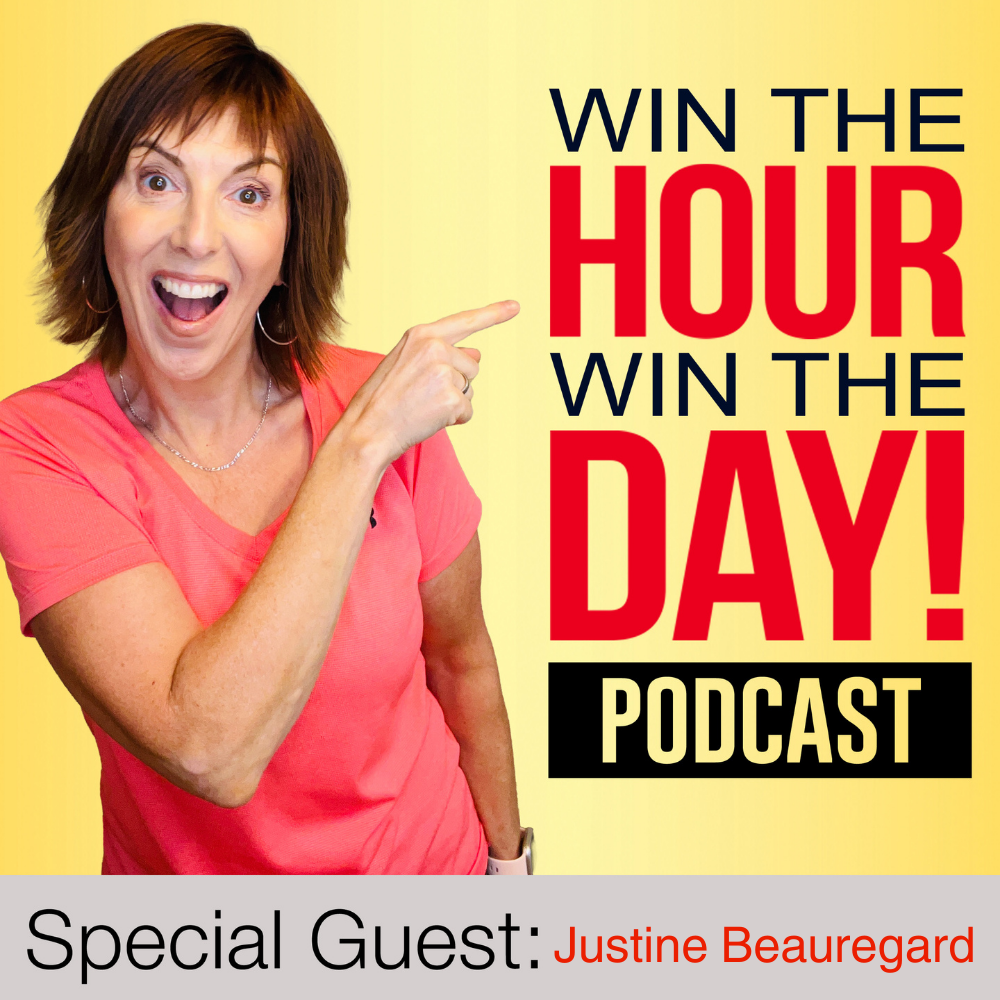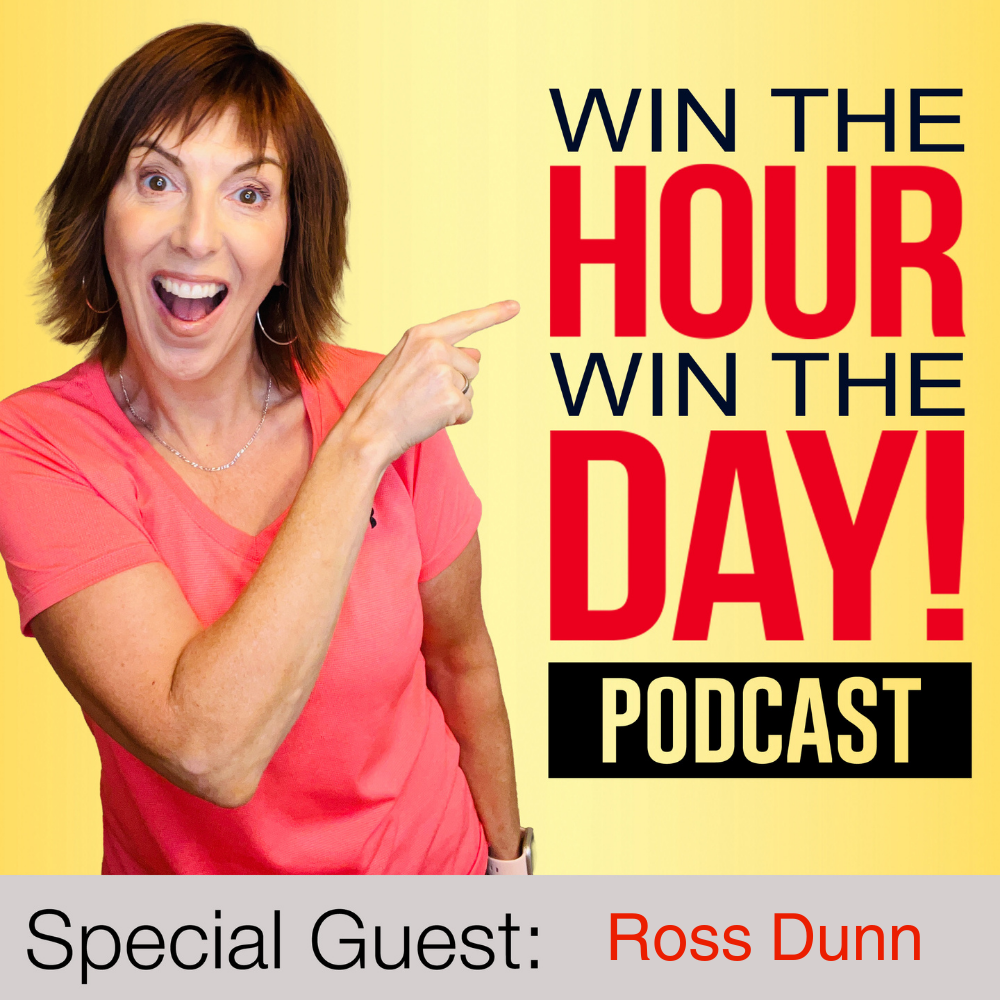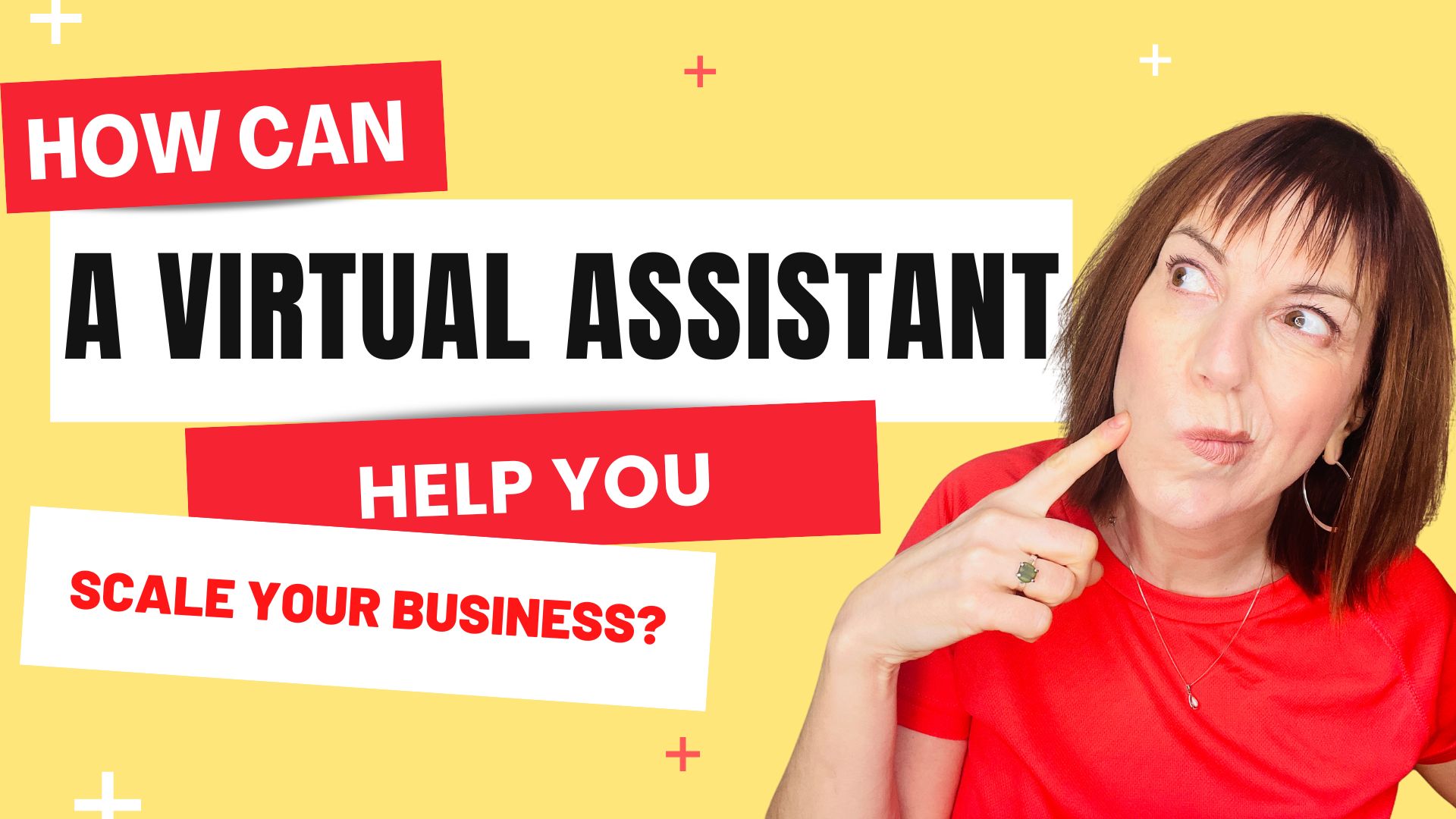Episode Summary
Majeed Mogharreban changes how we see language in the sales process! It’s an interesting conversation with subtle but powerful takeaways!
Learn
-how to avoid the most common mistakes in closing a sale
-why your words matter (more than you think) to you and your prospects
-what words you can use to make a lasting impression
W.I.N Time Back Quiz
https://bit.ly/WinTheHourWinTheDayScoreCard
Win The Hour, Win The Day! www.winthehourwintheday.com
Podcast: Win The Hour, Win The Day Podcast
Facebook: https://www.facebook.com/winthehourwintheday/
LinkedIn: https://www.linkedin.com/company/win-the-hour-win-the-day-podcast
Win The Hour, Win The Day Winners Circle: https://winthehourwintheday.com/winners-circle-masterclass
You can find Majeed Mogharreban at:
Book: Expert Speaker Five Steps To Grow Your Business With Public Speaking
Website: https://majeed-mogharreban.mykajabi.com/expert-speaker-ebook
Email: majeed@expertspeaker.com
LinkedIn: https://www.linkedin.com/in/majeedmogharreban/
Win The Hour Win The Day
https://winthehourwintheday.com
Majeed Mogharreban Podcast Transcription
[00:01:39]Kris Ward: Hey, everyone. Welcome to another episode of Win The Hour, Win The Day. And I am your host, Kris Ward. And today we have Majeed Mogharreban in the house. And boy, oh boy, this is gonna be a lucky day for you. I’m telling you if you do nothing else with your time this week, you need to go out and check, go over and check him out on TikTok.
[00:01:59] He does these amazing videos that just really anchor you and show you the sophistication, the simplicity, the profoundness in just words that we use every day in our business in sales. It is just amazing. Welcome to the show, Majeed.
[00:02:19]Majeed Mogharreban: It’s an honor to be here. Thank you for having me, Kris.
[00:02:22]Kris Ward: Majeed, on TikTok they have the ability that when you’re watching a video, you can save the video. And so sometimes I’ll put, I have a folder for ideas. I have a folder for hacks or whatever, and I have to tell you, I made a folder for you and only your videos. That’s it. Because there’s just so much knowledge when you break down a sentence and say, here’s a word that we’re often using, but let’s look how we use it a different way.
[00:02:50] And it’s just unbelievably impactful. So I thought today you could help our listeners, our audience, and talk about maybe some words that we use in the sales process. I know you’re an amazing dynamic speaker. You teach people how to speak and how to engage, but on a smaller stage, there’s a lot of impact in that first part, the sales process. So is that something we can dive into, have some fun and think about some words that maybe you think were either skimming over or we could be putting more weight into them.
[00:03:24]Majeed Mogharreban: Yes. Thank you for watching the TikTok videos, Kris. What did you name the folder that you’ve put my videos in?
[00:03:31]Kris Ward: Oh, that’s an interesting question. I put it as language because I thought at first, oh, your stuff is so good. And I thought, oh, there’ll be other people out there. And maybe I’m just gonna have a folder to think about language, but I’ve got all these videos of you and that’s it. So I should just rename it with your name, but I had it as language. And what a good question from a guy who talks about language, what’s the word you use, Kris?
[00:03:55]Majeed Mogharreban: Well, the funny thing about words is that the word I say means something to me, but it might mean something different to you. For example, I say orange, what do you think of?
[00:04:06]Kris Ward: An orange?
[00:04:08]Majeed Mogharreban: The fruit?
[00:04:09]Kris Ward: Yes.
[00:04:10]Majeed Mogharreban: Okay. Some people might think of the color. I asked this to a class once and a British woman said I’m thinking of the phone company. And I said, “What phone company?” She said, “What? You’ve not heard of orange? Well, it’s apparently a mobile phone company in the UK. And so, if I say the word sales to you, some people say, oh, great money.
[00:04:35] I love sales. Some people say, oh, no, I don’t want that. Because we haven’t attached definition. We have an attached feeling. Right. So I made that TikTok series called Magic Words. Because to me, words are magic. They create our reality. One of my favorite words is Abra Cadabra because it comes from the Hebrew that says I speak and create.
[00:05:00] When we create, we create our reality with words, the relationship we have to ourself and our reality and how we explain things to make stories about things are constructed from words. So one of the words that I avoid saying is “I have to.” Because every time I say I have to, I feel like I’m not in control.
[00:05:19] I’m a victim. Today, I have to pick up my kids from school. So instead of saying, I have to, I’ll either say “I choose to,” or “I get to.” So when I have a client call and someone invites me to a party and I gotta deliver a client call or I gotta deliver, I don’t say I have to. I say I get to reminding myself to be in a state of gratitude.
[00:05:42] So what can we use to be more effective in marketing and sales? Well, your greatest sales tool is your customer’s imagination. And one of the ways to activate your customer’s imagination is to just use the word imagine. So if you’re selling a car, you say, you’re selling a minivan to a soccer mom.
[00:06:03] You say, imagine how happy your children will be when they get to invite four of their friends to come along to soccer practice, because you have that extra row seats. Mm. Imagine. Imagine pulling up to the driveway of your brand new home and feeling like a queen in her castle. Imagine.
[00:06:28]Kris Ward: Okay. So imagine, so we wanna do some future pacing there but I think what you’re using is you’re also being a little bit more descriptive with the imagine.
So imagine. That’s another one of your natural gifts is you sort of almost like a play with words really because you’re pacing changes. Youre giving the word some energy and you’re also, I think punching the word, like giving it a little punch where I might say the same thing, but if I’m not mindful of my energy, I’m skimming over the word that you want to be the most impactful.
[00:07:08]Majeed Mogharreban: Yeah, tone matters. Rhythm and pace matters. Emphasis matters where the word goes in the sentence matters.
[00:07:15]Kris Ward: Right? Okay. All right. So imagine if I’m talking to one of my clients, imagine a year from now, when you say, when I met Kris, oh my gosh. My business changed. I used to be working crazy hours, evenings and weekends.
[00:07:32] Imagine what it would look like when you’ve got your weekends free. You’re not rushing around. Everything isn’t an interruption to work. So we’re just wanting to really lean into the imagine. Have that be something more, that’s not a word. I’ve heard the word imagine in sales before, but it’s just thrown in there. And I think you’re sort of letting it blossom more.
[00:07:58]Majeed Mogharreban: Yes. So one definition of sales is an agreement to a better future. And so when you’re working with your clients, Kris. Your client’s experience, an extra 25 hours a week within their first month. So you can pose the question and tack on at the beginning of the question, let’s say, you and I work together.
[00:08:18] And within one month you have an extra 25 hours a week. Imagine what would your life look like for using the word look like so they can visualize it. What would your life look like with an extra 25 hours a week? What would you do with those extra 25 hours? Now what they tell you to answer what their answer to that question is, what they’re buying from you, even though you might think what you’re selling is productivity tools and simplification and checklists, and how to delegate to your VA.
[00:08:51] And that’s what you do. But what they get is what they’re buying and what they get is 25 hours. And what they really get is how they imagine they’re going to use those 24 hours. And what they really get is what they imagine, how they’re gonna feel with those 25 hours. if whatever you’re selling is to help them make more money, make more money is great, but go one step farther and say, what would you do with that extra money?
And now you get to the real answers like, well, if I had 25 hours. I would take my kids to soccer practice and I would sit there and I wouldn’t be on my phone answering customer emails.
[00:09:23]Kris Ward: Mm-hmm mm-hmm yeah. I always say doing emails from a different location is not a break. When you say, “let’s say” I would’ve probably used the word: Imagine if a year from now. So I know you’re so purposeful in how you lay the groundwork. So let’s talk about why you chose, let’s say over if, cause I know you have a reason.
[00:09:48]Majeed Mogharreban: Yes. Let’s say; assumes agreement. “If” creates the potential that maybe you do work with me, maybe you don’t. I will prefer to use the word “when,” instead of “if” so when you and I work together and get you that 25 hours a week back, what would that look like is better than if we work together.
[00:10:10] If we work together implies they have a choice, whether or not they should, when we work together implies that choice is already made. So this language is designed to allow them to test drive how that feels. So when you and I work together, you get an extra 25 hours a week. What would that look like for you?
[00:10:29] And how would you use those extra 25 hours? That question allows them to try on, how does that feel? What does that look like to have that result? But if we use the word “if” then they’re debating within the question. Well, I don’t know. Is that gonna happen or is that not gonna happen?
[00:10:47]Kris Ward: They’re lost in the beginning part of it. Okay. That’s good because I really do think about words a lot. Now, I feel quite foolish saying that to you but energetically when I’m using my own self dialogue or anything really careful about the words that I use for myself to navigate the energy and to make things a positivity, make it a positive experience.
[00:11:10] So I love that we’re tapping down even further. So I know for you, feelings is a powerful word as well. And in a situation where we’re dealing with business, where we might skim over that thinking it’s not as relatable or as impactful in business, but that’s something that I think, you have a lot of thought about is a lot of feelings, you have a lot of feelings about feelings yeah.
[00:11:37]Majeed Mogharreban: Well, I think the post-industrial revolution and information age led large organizations to think that they should train and value analytical thinking, and that feelings are belong in poetry. And touchy-feely outside of the workplace. That’s at least how I was sort of educated about feelings. What I’ve come to learn as a sales artist if I may.
[00:12:07]Kris Ward: Oh, that’s a good, that was really good.
[00:12:14]Majeed Mogharreban: Okay. Thank you. What I’ve come to know through experience is that decisions are made with emotions and justified with logic.
[00:12:25]Kris Ward: Mm. Yeah. You’re still right. Sometimes you look at something and I’m like, I just have to figure out how I can justify this purchase. And I’m clear with myself on it. It’s like, oh, okay, now let’s do the math. How can I justify this? Yeah.
[00:12:39]Majeed Mogharreban: Yeah. And that’s a great question to use in a sales conversation. How are you making sense of this purchase today? How are you making sense of this investment? How does this investment make sense for you?
[00:12:49]Kris Ward: Mm. Okay. All right. Okay. So leaning more into feelings and also again, when we’re using these words, be mindful. Like, do you almost, if this is, I don’t wanna use the word script, but if you have a formula of something that you’re gonna say like, let’s say, imagine let’s say we work together a year from now imagine and all that stuff.
[00:13:15] Do you decide that this is sort of, I don’t know, the key piece of furniture in that sentence that we’re gonna lean. Is that conscious or you just that’s a flow on its own that eventually just lends itself to any sentence.
[00:13:29]Majeed Mogharreban: I didn’t understand the question.
[00:13:31]Kris Ward: That’s okay. Cuz it was, you know what? I didn’t understand that because I was like, let’s see how he does with that one. Okay.
[00:13:37]Majeed Mogharreban: You threw in a piece of furniture and I got lost.
[00:13:41]Kris Ward: I was like, I guess what I was saying, trying to say is there’s a lyrical way in which the way you speak. So when, regardless of the sentence, do you just know, like, here’s the formula for a sentence I’m gonna constantly choose this word to lean into?
Or do you pick the word first and say, okay. Imagine needs to have because there seems to be a path there or am I overthinking it? Cuz it’s just so fantastic to watch you talk.
[00:14:08]Majeed Mogharreban: I think, I think in pictures. I think we think in pictures and I know that the tool to connect to emotion is stories.
So if I’m gonna tell a story, I’ll say, I’ll never forget the day I’m standing in the back of the church. And the light is coming through this stain glass. And I remember exactly what the preacher said. He said, and I won’t forget these words. He said, So I’m bringing you right into that moment and it’s sensational and there’s light, and I’m telling you what I heard and I’m telling you what I’m seeing so that I can cultivate this image to create the emotion.
[00:14:51]Kris Ward: So then, I think your strengths are also your weakness. So for me, I even say to my clients who sometimes say, but oh, I’m really organized or other clients think, oh, you know, I wish if I was more organized, I would need your help. And I argue that some sometimes, or I don’t wanna use the word argue now.
[00:15:13] We’ll do… I’ll have a lot of internal dialogue while I’m on the phone call with you, Majeed. My thing is that you can over organize yourself and it’s like having a screw in a wall with a screwdriver. You keep stripping yourself, right? You keep stripping the screw going tighter and tighter.
[00:15:30] So being organized is not the solution for being effective in your business. What I would say too, though, as an organized person, I sometimes overthink things and it can be too linear. So I think even using the word sales artist gives us some idea that there’s breath, there’s flow, there’s creativity in this process and don’t start to make these scripts and tighten it all up. And here’s the formula for those sentences.
[00:15:56]Majeed Mogharreban: Yes, you’ve done a beautiful metaphor with the overstripping the screw. And a metaphor is a way of explaining something, using something that we already understand so that we can understand this new thing that we’re trying to understand. We understand what overscrewing the screw and stripping a screw is it’s useless, extra effort, so that
[00:16:15] explains the metaphor over organizing is over efforting with no benefit. So overscripting, I do believe in scripts. I like scripts. And what that allows you to do is practice and rehearse and drill so that you’re not in your head asking what should I say? But you’re really present and listening and drawing on your rehearsed
[00:16:40] practiced phrases. So I have a practice phrase for when someone says, I need to think about it. Okay. On a sales call, I have a practice phrase for when someone says, I don’t think I have the time for this. I have a practice phrase for when someone says, I need to talk to my spouse. I know exactly how to respond.
[00:17:01]Kris Ward: Well, we like to hear those practice. Practice on us.
[00:17:03]Majeed Mogharreban: Yeah. When someone says, I need to think about it. I say, I might say it’s interesting you say that. What makes you say that? Or I might say that’s interesting that you say you need to think about it. That tells me that part of you wants to say yes.
[00:17:21] And part of you is not sure. Tell me about the part of you that wants to say yes. And notice my tone is innocent. It’s friendly. It’s I’m a little bit like a therapist, right? Iinstead of think about it. What’s to think about? That’s kind of confrontation, right?
[00:17:42] Or if someone says, I don’t know if I’m gonna have the time to commit to this and you say, of course you’re a busy professional. Like me time is very valuable, which is why this investment is actually going to save you time. Would you like to save time or would you like to continue to spend the time you’re spending, trying to figure this out?
[00:18:04] Let me ask you how much time is this costing you every month to continue to let this problem exist in your world. So now we’ve moved into seeing that actually this saves time. So I call this sales judo, and judo is the Marshall art where they famously use the opponent’s momentum against them. So in judo, someone will come at you with a punch and you actually take their velocity in their momentum and use it to throw them to the floor.
[00:18:34] And so even though this isn’t an adversarial conversation in a sales conversation, The reason I chose this phras judo is because you use the very reason why they’re objecting as the reason to close. Oh, you don’t have enough time. Then you definitely need this program. Oh, you don’t have enough money.
[00:18:52] Then you definitely need this program because it makes you more money.All of my programs don’t cost money. They make money. So anytime I have a cost objection, I’ll say, well, how much more would you make when this problem is solved? Right. I need to talk to my spouse. Sounds like this.
[00:19:09] If your spouse was sitting with you right now and they were listening to the whole conversation and they turned to you and said, go for it, would you be ready to go? Would you be a hundred percent yes or is there anything else that’s kind of holding you back right now? So we’ll start with that. And then I’ll say, well, what if they said no?
[00:19:26] What if they say, no, I want you to stay broke. I want you to stay stressed out. I want you to stay working a hundred hours a week and I don’t want you to succeed. What if they said that to you? And they go, well, they would never say that. Okay, great. Then let’s do it.
[00:19:42]Kris Ward: Okay. Ninja, that’s like ninja stealth crawling on ground. No one sees it coming. It really is a whole, I mean, like I said, I had this idea that I’m careful about the words I choose, but I just really think. I don’t know. I don’t even have the words to describe the depth in which I think that you can do this, that I really haven’t seen anybody else do it.
[00:20:10] I mean, I’ve had so many wonderful guests come to this show. I’ve been in business for quite some time now. I’ve been surrounded by fantastically amazing people. And some of them are exceptional of sales language or speaking from the stage and doing that stuff. But I really do think. I don’t know, it’s almost like a garden of words.
[00:20:28] And you’re like, well, instead of having a whole bunch of rose bushes, I’m going to get an award for this one rose, and we’re gonna put everything in to make them this flower. So with that, give us some other things that you probably think that we’re just not understanding the value or the weight in our communication when we throw these words around loosey loosey, because you see things differently than the rest of us.
[00:20:51]Majeed Mogharreban: Yeah. Thank you. Well, I mentioned the word Aber Cadabra. And I’ll also now tell you where words are come from. Words are spelled. And it’s a magical spell that is cast. And when you say a word you’re putting an image in your mind, you’re putting an image into someone else’s mind. So think of words as magic.
[00:21:10] That’s why I call it the series magic words, by the way, stay tuned for my next series, Kris called Great Question. I’m gonna bring you some great questions. And I’ve given you some examples of sales questions but one of the most powerful combination of words is “I am.”
[00:21:30] I am grateful. I am appreciative. I am happy. And I just recently read this book called Deepest Acceptance, and it talks about how we describe our emotions. I am sad. I am happy. And we identify with those emotions when the reality is the emotion is actually a wave passing through. And one of the phrases that we use differently is we say, I am in pain.
[00:21:58] I’m in pain. We don’t say I am pain. We say, I am in pain. And when we say I’m in pain, it tells us the phrase itself tells us that it’s temporary. But we don’t say that about, I am sad. So I’ve been playing around with the phrase as I’m talking to myself, I am in sad or I am in unhappy because it just tells me that I’m moving through it.
[00:22:22] I am in sad. Right. I am in unhappy. So one of my favorite words in marketing is the word “you,” if I’m talking to you, you’ve seen the infomercials. Are you experiencing back pain? Are you tired of waking up with a sore neck? That’s really powerful words talking directly to the listener.
[00:22:46] I also like the word “for.” I am the public speaking coach for entrepreneurs who want to grow their business with a signature speech. Kris, you’re the productivity coach for people who’ve been in business for over five years and wanna get their time back. “For” is a useful… in fact, I’ll give you a three word structure that will position you as the best in the world.
[00:23:13] And the structure is called The, For, Who. You could be “The” productivity coach “For” “People in business for over five years Who” wanna spend more time with their family. I am The public speaking coach For entrepreneurs Who want to grow their business with a signature speech. One of my clients is the health coach for executive women who want to kick ass in bed and have a kick ass body or kick ass.
[00:23:50]Kris Ward: Okay. there you go. Kick as that specific. That is niche specific. And you know, it’s really interesting to me for personally and professionally, I work really hard not to use the word, “No” not to give pushback. Cuz I think it comes off aggressive.
[00:24:04] So, one of your videos, like if somebody sends you something and I’m like, this is not a good fit for me, I don’t even know why they sent it to me and I’ll say, “Hey, I will pass that along to anyone that I see is a good fit. Instead of me saying, no, why are you sending this to me?” And one of your videos, I think it might have been the first one I tripped across and I thought it was just so interesting.
The whole don’t use no, that you learned that from being trained at apple and I wouldn’t have thought it would work because I’ll let you explain the different words they were using.
[00:24:35]Majeed Mogharreban: Yeah. I wasn’t trained at apple, but I had heard that apple employees are… Apple employees are instructed to not use the phrase “unfortunately,” and instead replace the word, unfortunately, with “as it turns out.”
[00:24:53] Because who are we to judge that it’s unfortunate, someone broke their screen, instead of saying, unfortunately, your screen is not covered under the warranty. You say, as it turns out, we can upgrade you to a new phone.
[00:25:07]Kris Ward: Gotcha. Okay. And you would think too, had I not heard you do that so eloquently that you would think it’s like, oh, that’s too wordy or it’s a goal around but I think again, with your tone in your pacing, it just keeps your energy flowing in the right direction.
[00:25:26] So even if your energy’s flowing and you get there and go well, all right. I’m still buying a new computer, at least your spidey senses. Don’t go up when you hear the word unfortunately. So you’re not getting your backup ready to argue over something, right? Yeah. So it keeps everybody in a Zen position moving at least in the right direction.
[00:25:42] Right. Fabulous. Okay. You know, it didn’t strike me as a, I figured it was a high school job. it didn’t strike me as a computer guy at apple. Because one of your other many gifts is every picture I’ve seen of you. You’ve had a completely different hairstyle, so oh my gosh. Okay. This has been fantastic.
[00:26:03] Where can people find more of your amazing brilliance? Which I will warn you it is addictive. Like it’s like reading a book. You could just sit down in a chair and once you find one of his videos, you just wanna keep going. It’s just, it’s like story time for the happy entrepreneur.
[00:26:19]Majeed Mogharreban: Amazing. Well, as a matter of fact, you can get the book it’s called Expert Speaker Five Steps To Grow Your Business With Public Speaking, you can get it on Amazon, or you can get it for free as a PDF download at expertspeakerbook.com.
[00:26:34] If you’re interested in a one-on-one consultation with me, I give a complimentary consultation for people who want to grow their business with public speaking. And this is a strategy session to drill into your personal brand and the strategy of how you can use speaking to drive more business. So that’s at expertspeaker.com/apply. So expertspeaker.com/apply. And finally, for the short form content on TikTok, you can find me @expertspeaker, all one word on TikTok.
[00:27:04]Kris Ward: And you wanna check it out. I can’t stress that enough, whatever you’re doing right now after you listen, do not put the phone down, go right to TikTok and check them out. Majeed, you have been fantastic. We so appreciate you. It’s nothing more generous someone can give us than their time. So we appreciate yours and everyone else, we will see you in the next episode.
[00:27:23]Majeed Mogharreban:Thank you, Kris. END[00:27:24]










